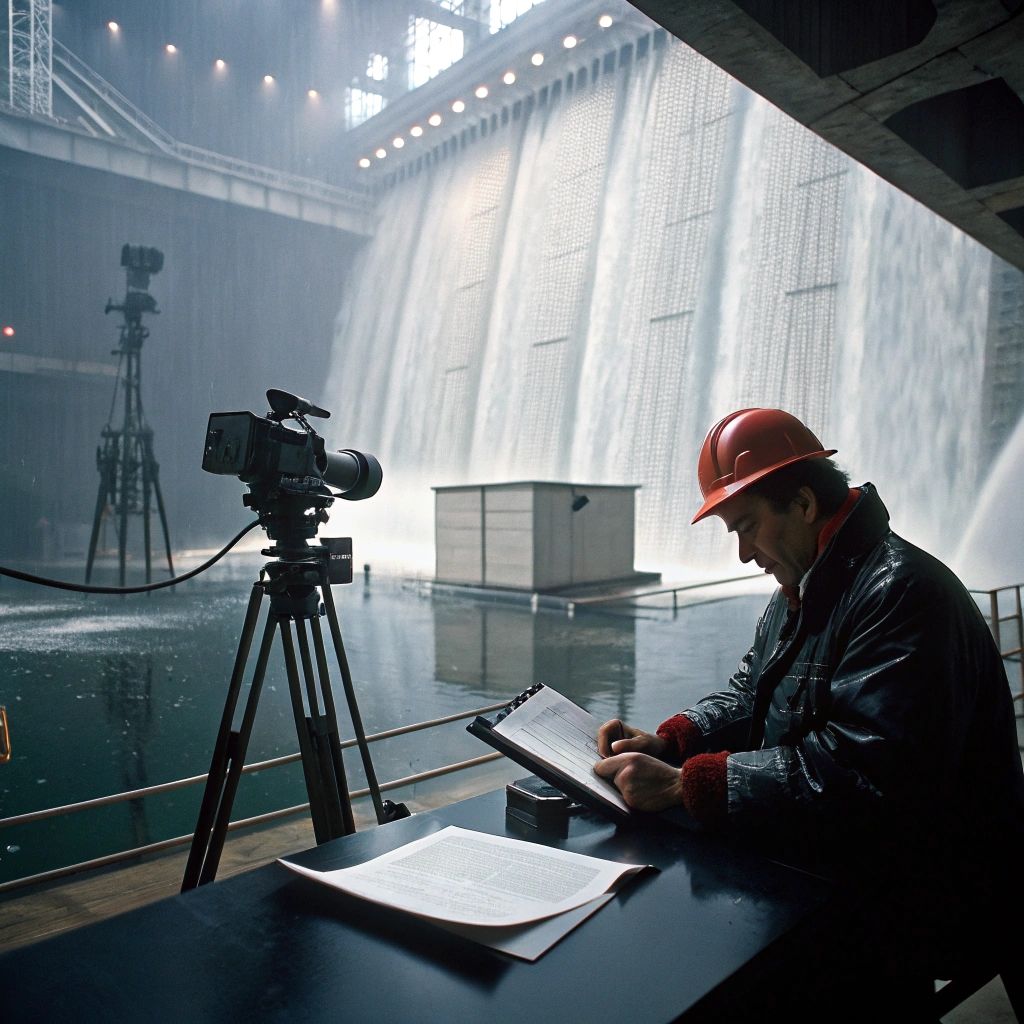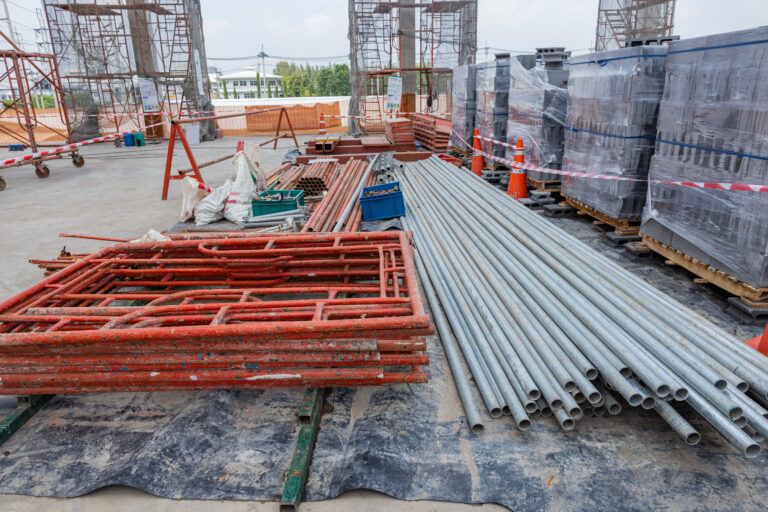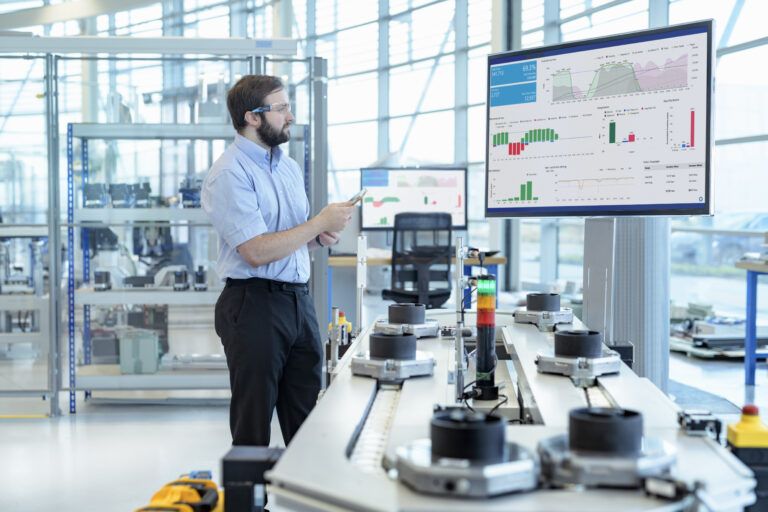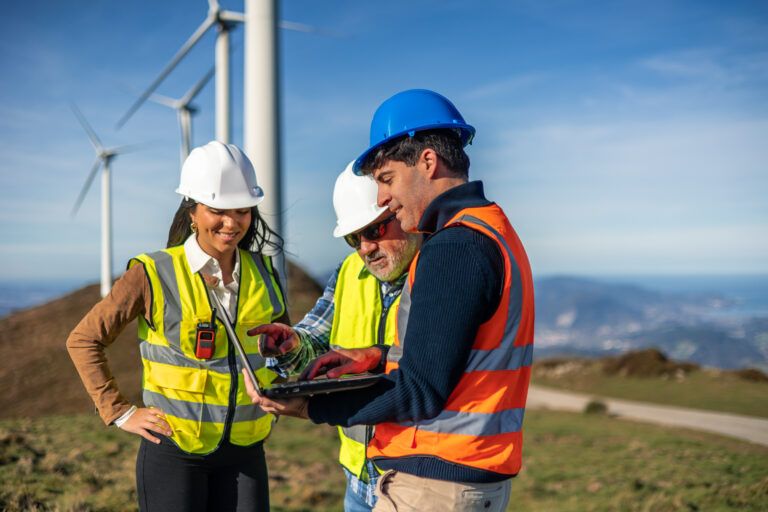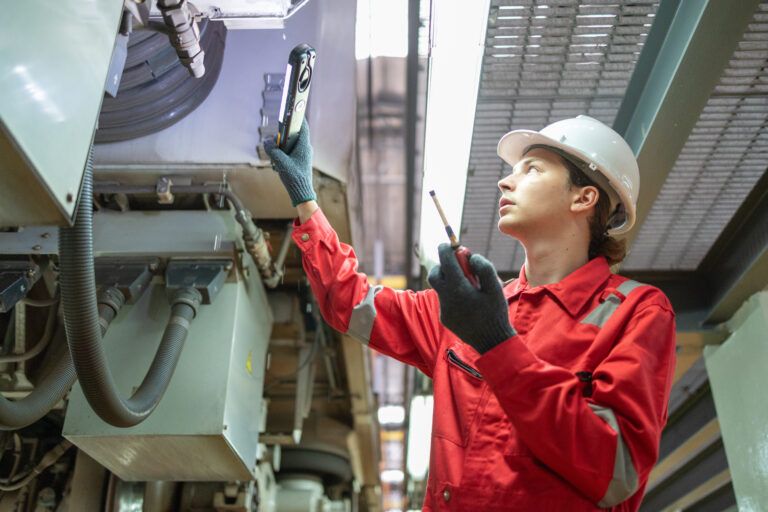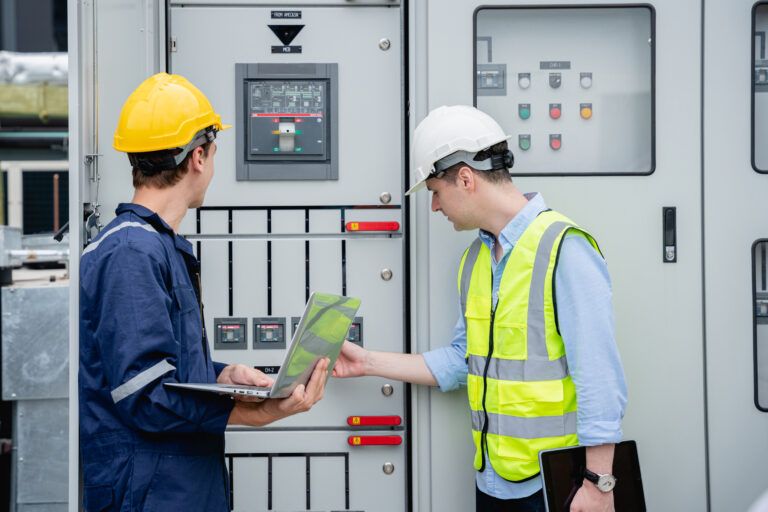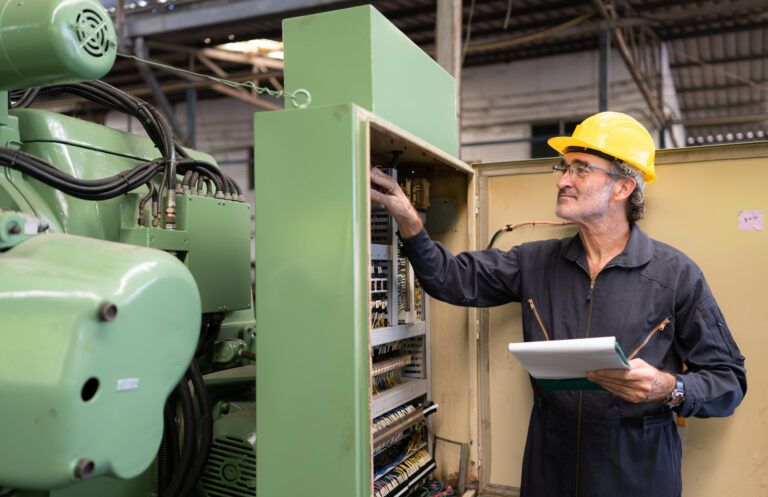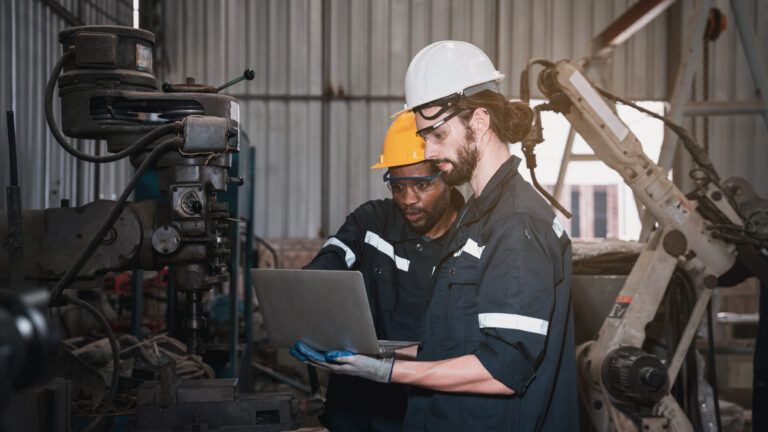What questions are asked in mechanical engineering interviews? Industrial mechanical engineering interviews cover five core areas: fundamental technical concepts (thermodynamics, stress analysis, fluid mechanics), software platform proficiency (CAD and analysis tools), multi-disciplinary coordination abilities, understanding of project delivery and client requirements, and behavioural scenarios assessing cultural fit and problem-solving approach. Interview depth and focus vary significantly by company type, industry sector, and level of experience.
Mechanical engineering interviews aren’t one-size-fits-all. Different industry sectors need different approaches. Company types matter too. Most candidates don’t realise how different these interviews actually are.
A product development role at a consumer company needs different technical expertise compared to an industrial engineering position. Multi-discipline firms working on process plants need completely different skills.
You might be fresh out of school. Maybe you’re switching companies after a few years. Or moving from specialised work into multi-disciplinary environments. Each situation brings different preparation needs. Fresh graduates get tested on fundamentals. Career switchers face questions about why they’re changing.
Multi-disciplinary industrial settings demand more than pure technical knowledge. It’s how you apply fundamentals and collaborate across disciplines to solve real project problems. Teams delivering large-scale facilities rely heavily on mechanical engineering services for industrial projects to ensure system integration and design efficiency.
You need to show you can work in multi-disciplinary teams. Mechanical, electrical, piping, civil, and instrumentation engineers are all constantly coordinating their efforts. Pure technical expertise isn’t enough anymore. Interviewers see candidates with perfect marks who can’t explain how they’d coordinate with electrical engineers. Those interviews end badly.
Disclaimer: Interview practices, technical requirements, software expectations, and compensation ranges vary significantly by geographic location, employer type, industry sector, and career stage. All information reflects 2025 industrial engineering practices and should be verified with specific employers and professional associations. Salary figures represent general ranges, and individual outcomes vary widely based on market conditions, specialisation, and negotiation.
Essential Technical Questions Every Mechanical Engineer Should Master
Basic technical concepts appear in virtually all mechanical engineering interviews, regardless of industry. Interviewers want to see you understand principles deeply, not just memorise equations.
Thermodynamics Questions That Actually Come Up
The first law of thermodynamics shows up constantly. Conservation of energy principle. Interviewers favour energy balance problems. Can you track energy flows through systems? Analysing inputs, outputs, and energy transformations.
Refrigeration cycles are used in HVAC and process cooling applications. Can you explain the vapour compression cycle? Four main stages: compression, condensation, expansion, and evaporation. Simple question. Many candidates fumble it. They memorised the names but don’t understand the actual physics.
Why do certain refrigerants work better? R-134a or ammonia versus others. Based on thermodynamic properties and environmental regulations.
The second law questions test entropy understanding. Real-world limitations from irreversible processes. Why can’t we achieve 100% efficiency in practical heat engines? What determines maximum theoretical efficiency according to the Carnot cycle?
Show your reasoning process. Don’t just state formulae. Explain why you’re using a particular approach.
Stress Analysis and Material Selection
Stress-strain relationships are fundamental. Tensile stress. Shear stress. Bending stress. Can you explain what happens when you load a material? How does it deform? Where does it fail?
Beam theory questions assess design thinking. Simply supported beams present different stress patterns compared to cantilever beams. Point loads versus distributed loads. Calculate maximum bending moment locations. Find deflection at specific points.
Material selection scenarios test practical judgement. Why choose stainless steel over carbon steel? When does aluminium make sense despite higher material costs? These questions separate experienced engineers from recent graduates.
Discussions about the factor of safety reveal engineering maturity. Different safety factors apply to various applications, depending on the level of uncertainty and potential consequences. One candidate explained using a safety factor of 1.2 for a pressure vessel. Asked why it was so low? ‘Seemed reasonable.’ That candidate didn’t get the job. Pressure vessels typically need safety factors of 3-4 minimum.
Critical Fluid Mechanics Topics
The Bernoulli equation applies to countless industrial situations. Pump sizing. Pressure drop calculations. Flow measurement. Can you set up the equation correctly? Accounting for pressure terms, velocity, and elevation. Identify where energy losses occur.
Reynolds number determines flow regimes. Values below 2,300 indicate laminar flow. Above 4,000 indicates turbulent flow. Laminar versus turbulent significantly affects heat transfer coefficients.
Pump and compressor fundamentals test rotating equipment understanding. What’s the difference between centrifugal pumps and positive displacement pumps? How do you read pump curves? These questions trip up candidates regularly.
Software Platforms Industrial Engineers Actually Use
Software expertise claims are common. But interviewers dig deeper. They want to know how you actually work. Candidates who can deliver projects versus those who just passed classes show apparent differences.
CAD Platform Expectations
AutoCAD experience is a baseline. But interviewers want specifics. What types of drawings have you created? Assembly drawings. Detail drawings. Installation drawings. How do you organise layers? Understand blocks and external references?
AutoCAD alone won’t cut it for large industrial projects. Once budgets exceed £8 million, industrial platforms become essential.
SolidWorks proficiency matters for equipment design. Autodesk Inventor, too. Portfolio examples showing actual design projects prove capability better than checkbox claims on CVs. Candidates often show up claiming SolidWorks familiarity but can’t produce a single example. Interview over.
Bring examples. Printed or on a laptop. Discuss design intent. Assembly constraints. Complex part relationships. Show your workflow. Generic statements like ‘familiar with CAD’ don’t cut it.
Industrial Platforms for Multi-Discipline Projects
AVEVA platforms dominate large industrial projects. Software tools for multi-disciplinary engineering on budgets exceeding £40 million. AVEVA Unified Engineering connects mechanical design with electrical, piping, civil, and instrumentation work. Shared 3D environments. All disciplines access common project databases.
Vista Projects is an AVEVA Partner, with mechanical engineers working on advanced platforms. These aren’t just drafting tools. Data-centric engineering environments supporting entire project lifecycles.
E3D Design brings mechanical equipment into 3D plant models. You design equipment supports. Access platforms. Maintenance clearances. Real-time clash detection catches conflicts before construction, when changes typically cost significantly less to resolve.
Learning these platforms shows commitment. They’re considerably more complex than basic CAD. AVEVA takes six months to get productive. A year to feel comfortable. Nobody masters it quickly.
Analysis Software Reality
ANSYS or similar FEA software handles structural analysis beyond hand calculations for complex geometries. Interviewers want to know your analysis approach. How do you set up models? Apply boundary conditions and loads?
Results interpretation matters more than running software. Analysis tools can produce incorrect results if improperly used. Rubbish in, rubbish out. Can you explain stress distributions? Identify stress concentrations? Determine whether deformations are acceptable.
Some candidates run ANSYS simulations, generate beautiful stress plots, but the results make zero physical sense. They don’t even notice.
Don’t claim expertise you don’t have. But show willingness to learn. Explain how software gets picked up quickly.
Multi-Disciplinary Coordination in Industrial Projects
Five or six disciplines work simultaneously on industrial projects. Your success depends entirely on the quality of coordination. This either works smoothly or becomes a nightmare.
Cross-Discipline Dependencies
Electrical engineers specify motors, variable frequency drives, and control panels. You design the mechanical systems, power, and structures that support them. Interviewers ask how you coordinate motor selections, provide adequate cooling, and ensure maintenance access with minimum clearances.
Piping engineers route process piping throughout facilities. Your equipment layouts must be coordinated with the piping arrangements. Expect questions about avoiding conflicts.
Process engineers define the duties of heat exchangers, vessel operating conditions, and equipment performance requirements. You translate these into mechanical designs. Can you read P&IDs? Understand equipment specifications? Vendor data sheets become essential. Learn to read them. They contain everything needed, buried in 50 pages of technical jargon.
Civil engineers design foundations and structural supports. You provide equipment loads, moments, and dynamic forces. I&C engineers install sensors and field devices on mechanical equipment. You provide mounting locations, process connections, and maintenance access.
Design Review and Clash Detection
Multi-disciplinary design reviews happen regularly. You present mechanical design decisions. Other disciplines question conflicts. Collaboration means compromise between competing requirements.
Clash detection software identifies conflicts before construction. Your pipe support interferes with the electrical conduit. Your equipment platform blocks a piping valve. How do you resolve these? One candidate said ‘Just tell electrical to move their stuff.’ Wrong answer.
Documentation supports coordination. Design notes need clarity. Calculation packages require thoroughness. Poor documentation creates confusion and delays.
Client Requirements and Project Delivery Understanding
How to prepare for a mechanical engineering interview? Preparation requires five key areas: reviewing fundamental technical concepts with worked examples, practising software demonstrations or portfolio presentations, preparing specific project examples using the STAR method, researching the company’s project portfolio and industry focus, and developing thoughtful questions about team structure and professional development opportunities. Allocate roughly equal preparation time for both technical review and behavioural scenario practice to achieve balanced interview performance.
Technical skills alone aren’t enough. Business awareness matters. Client interaction affects projects. Most candidates neglect preparing for these topics.
Owner-Direct vs EPC Projects
Owner-operators hire engineering firms directly. You work closely with their operations and maintenance teams. They care intensely about operability, maintainability, and long-term costs over a 20-30 year period. These discussions happen regularly.
EPC contractors run large capital projects. Engineering, Procurement, and Construction firms. Turnkey delivery. More removed from end users. Focus on meeting contract requirements within budget and schedule constraints.
Owner-direct projects involve more client meetings and design iterations based on operational input. EPC projects move faster with tighter budgets. Owner-direct projects often provide better learning opportunities through operational input.
Cost Engineering Considerations
Every design decision affects costs. Equipment selection. Material choices. Layout efficiency. Total installation cost includes materials, labour, and construction overhead. Your design impacts all components. Shorter pipe runs can reduce material costs meaningfully. Logical equipment groupings reduce installation labour.
Total Cost of Ownership extends beyond installation. Twenty to thirty years of facility operation. Energy efficiency affects long-term costs. Maintenance requirements commonly exceed initial capital costs by considerable factors.
Design for lifecycle costs. Value engineering identifies cost reduction opportunities. Questions involve realistic scenarios. A client wants to reduce capital costs by 15%. What would you look at first? Many candidates freeze. They’ve never thought about cost trade-offs.
Construction Support
Design doesn’t end when drawings get issued. Construction teams have questions. Submittals need review. Field conditions differ from assumptions.
RFI responses need a quick turnaround. Typically 48-72 hours. In one reported case, delayed responses left construction crews idle, burning substantial daily costs. That engineer got removed quickly.
Submittal review confirms that the contractor-purchased equipment matches the design intent. Commissioning validates that installed systems work as designed. Nothing focuses engineering attention faster than watching a design struggle during start-up.
Industry-Specific Technical Questions
Here are some industry-specific technical questions you should prepare when going for your interview for mechanical engineering jobs.
Process Plant Engineering
Rotating equipment dominates the process industries, typically representing a significant portion of major mechanical equipment. Centrifugal pumps. Compressors. Turbines. Can you explain pump curves? Discuss compressor surge? Understand mechanical seal selections?
Pressure vessels contain process fluids under pressure. Vacuum conditions to pressures exceeding 20 MPa. CSA B51 Boiler and Pressure Vessel Code requirements apply. What determines whether a vessel needs code stamping? How do you calculate wind loads on tall vertical vessels using building code provisions?
Heat exchangers transfer energy between process streams. Shell-and-tube exchangers. Plate-and-frame. Air-cooled exchangers. Interviewers ask about selection criteria. Heat duty. Pressure drop. Thermal expansion accommodation.
Material selection for process service needs an understanding of corrosion mechanisms, temperature limits, and pressure ratings. Why use stainless steel grades for certain chemicals? When does alloy steel become necessary?
Sustainable Energy Systems
Carbon capture facilities have unique mechanical challenges. CO2 separation. Compression. Storage systems. Multi-stage compression with intercooling. Heat recovery from compression can improve energy efficiency meaningfully.
Renewable energy creates opportunities. Solar panel mounting structures must withstand substantial wind loads. Wind turbine towers need fatigue analysis for 20+ year service lives. Battery energy storage systems need cooling and fire suppression.
Behavioural Questions and Cultural Fit
Non-technical questions assess cultural fit, work style, and problem-solving approach. These often determine hiring decisions.
STAR Method Framework
The STAR method structures behavioural responses. Situation, Task, Action, Result. For answering ‘Tell me about a time…’ questions. Just tell a clear story. What happened. What you did. What resulted.
‘Tell me about a tight deadline’ tests pressure handling. Don’t just say you worked harder. Explain how you prioritised tasks. Identified critical path items. Coordinated with team members.
‘Describe a disagreement with a colleague’ reveals conflict resolution. Interviewers want professional disagreement handling. Understanding other perspectives. Working towards solutions.
Professional Development Questions
‘How do you stay current with technology?’ assesses continuous learning. Good answers include specific actions. Courses taken. Conferences attended. Certifications pursued.
P.Eng. licensure pathways for engineers seeking professional registration require 4-5 years of experience and passing the Professional Practice Exam. Software certifications show platform expertise.
Preparing for Interview Success
Interview preparation needs multiple dimensions, technical review, behavioural practice, and company research. Reviewing recommended mechanical engineering books can deepen your understanding of core topics like thermodynamics, stress analysis, and fluid mechanics before your next interview.
Research target companies thoroughly. Their project portfolio. Industry focus. Company culture. Generic interview answers fall flat. When you haven’t researched what makes a company distinctive, interviewers notice immediately.
Prepare specific project examples demonstrating technical capability, problem-solving ability, teamwork, and results achieved. Choose examples relevant to the position. Develop your portfolio for design positions. Include drawings, models, and calculations. Explain your role clearly.
Prepare thoughtful questions for interviewers. Ask about project types, team structure, and professional development opportunities. Interview performance improves with practice.
Compensation Expectations
What is the average mechanical engineer salary? Mechanical engineer salary in Canada varies significantly by experience level and location. Studies suggest junior mechanical engineers typically start around £48,000-£60,000 (or $60,000-$75,000 CAD) as of 2025. Intermediate engineers with 3-7 years of experience typically earn £64,000-£80,000 ($80,000-$100,000 CAD). Senior positions with 7-15 years of experience often reach £85,000-£112,000 ($105,000-$140,000 CAD), depending on specialisation, industry sector, and geographic market. Calgary compensation differs from Vancouver’s. These ranges shift based on cost of living, industry concentration, and individual negotiation.
Finding the Right Fit
View interviews as mutual evaluation. You’re assessing whether the company and projects align with your goals. Vista Projects’ multidisciplinary approach, spanning Calgary, Vancouver, and international locations, showcases its collaborative engineering capabilities. Their 40-year track record across 13 energy markets, from petrochemical processing to renewable energy, shows a commitment to developing people for long-term career growth.
Mechanical engineering careers in industrial sectors offer opportunities contributing to energy infrastructure, sustainable technology development, and essential facility operations. Explore mechanical engineering career opportunities at companies like Vista Projects, where collaboration and technical growth define long-term success.
Disclaimer: This article is for informational purposes only and should not be considered career or employment advice. Interview practices, technical requirements, and compensation vary significantly by geographic location, employer type, industry sector, and individual circumstances. Salary figures represent general industry ranges, and individual outcomes depend on market conditions, specialisation, negotiation, and experience level.
